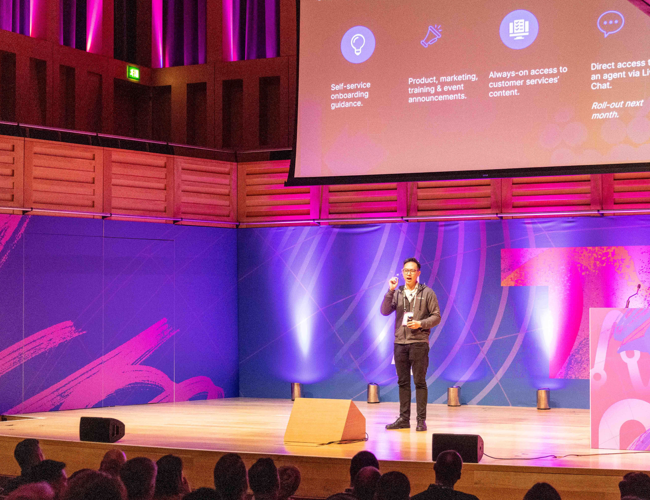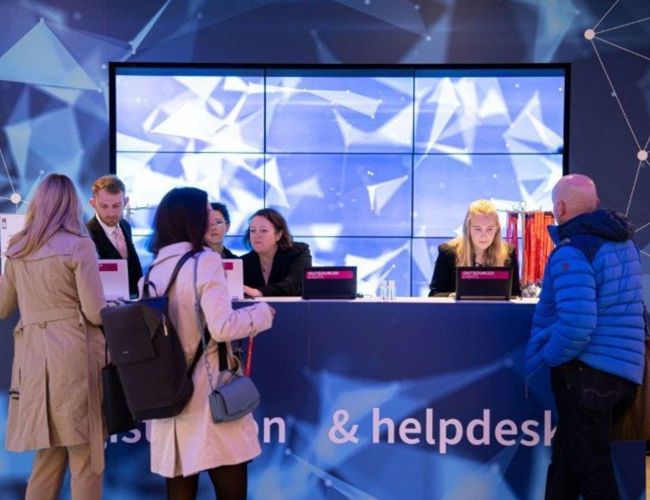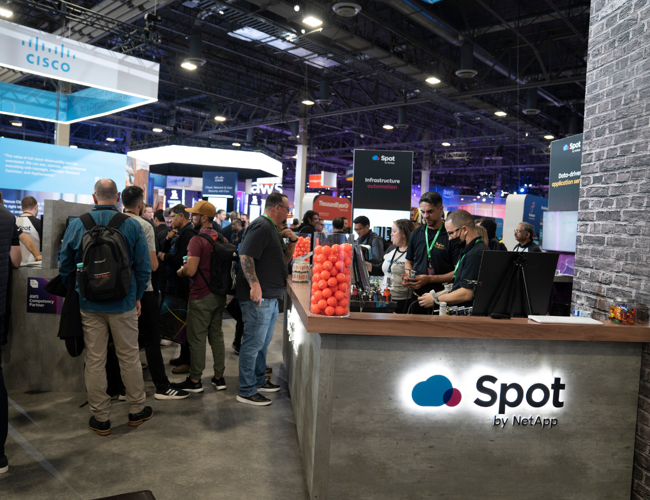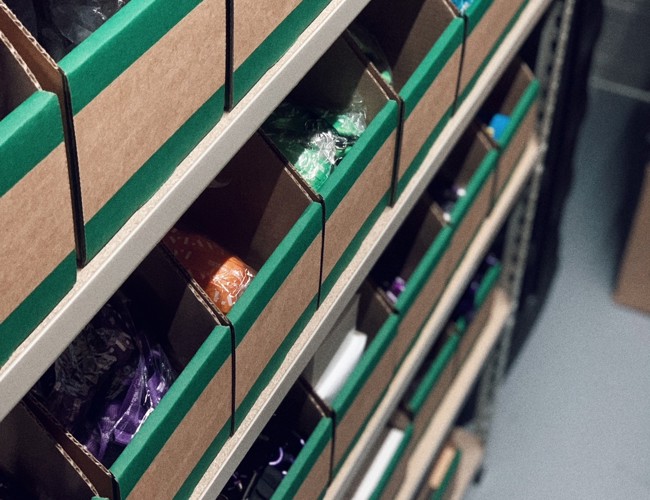How to choose the right venue for your corporate event
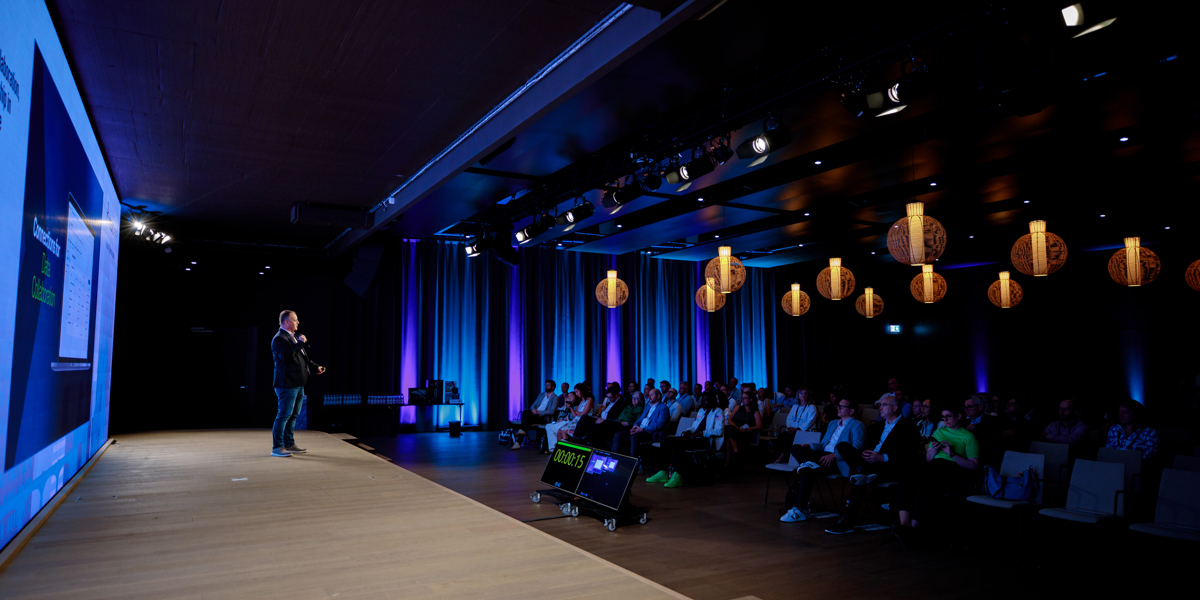
How to choose the right venue for your next event
Selecting the perfect venue can make or break your corporate event. The venue you choose serves as more than just a location, it's the foundation of your entire event experience.
Why venue selection is crucial for event success
The event venue you select is the physical embodiment of your event and directly reflects your company's values and standards. It needs to align seamlessly with your event objectives whilst delivering the high-quality experience your attendees expect. The right venue creates the perfect atmosphere for productivity, networking and engagement, whilst the wrong choice can undermine even the most well-planned agenda.
When searching for venues, it's essential to remember that convenience isn't everything. The venue must serve your specific needs and support your event goals, whether that's facilitating meaningful networking opportunities, ensuring clear presentation visibility, creating an environment conducive to collaboration or providing the right ambiance for celebration and recognition.
Common mistakes to avoid when choosing venues
Many event planners fall into predictable traps when selecting event venues. The most significant mistake is prioritising price over value. Whilst budget considerations are important, choosing the cheapest option often leads to compromises that can damage your event's success and your company's reputation.
Another critical error involves overlooking the layout and flow of the space. You don't want delegates spending excessive time travelling between different areas or struggling to navigate the venue. The space should facilitate smooth transitions and support your event's natural rhythm. Consider exhibitors' needs as well - they require accessible loading areas for setup, adequate power supply, appropriate ceiling heights for displays, and strategic positioning that maximizes foot traffic and visibility. The venue layout should create natural pathways that guide attendees past exhibition areas while ensuring exhibitors have the infrastructure and positioning they need.
Consider whether the venue allows you to meet your core objectives. If networking is essential, does the space provide adequate circulation areas and comfortable gathering points? For presentation-heavy events, can every attendee clearly see and hear from all seating positions? For team building activities, is there sufficient space for group work and movement? These fundamental questions must be answered before making any commitments.
Understanding your event requirements
Defining your event type and audience needs
Before exploring venue options, clearly define your event type and understand your audience's specific needs. Are you hosting an interactive workshop, a networking reception, a product launch, an awards ceremony or a team building event? Each format requires different spatial considerations and amenities.
Consider your target audience demographics, their professional backgrounds and what they hope to gain from attending. This understanding will guide your venue selection process and ensure you choose a space that resonates with your delegates and supports your corporate objectives.
Considering attendance numbers and layout requirements
Determine the optimal number of delegates needed to achieve your event objectives. Are you aiming to reach a mass audience, or is your focus on quality interactions with a smaller group? This decision significantly impacts your venue requirements and available layout options.
Different seating arrangements serve different purposes across various corporate event types:
- Theatre-style layouts work excellently for presentation, focused events like conferences and product launches, maximising capacity whilst ensuring clear sightlines
- Cabaret-style arrangements are ideal for training sessions and workshops where delegates need to collaborate alongside presentations, providing table space for materials
- Boardroom setups suit executive meetings and strategy sessions requiring intimate discussion and confidentiality
- Reception layouts with standing areas and cocktail tables encourage mingling for networking events and corporate celebrations
- Open floor plans provide flexibility for team building activities, exhibitions and interactive corporate experiences
Key factors to evaluate when selecting venues
Location and accessibility considerations
When evaluating corporate event venues, consider where your delegates are travelling from and how easily they can reach the location. For international corporate events, assess flight connectivity—are there direct flights available, or will attendees face multiple connections?
Factor in visa requirements for international delegates, as these add time and budget considerations to your planning process. Domestic accessibility is equally important: consider proximity to major transport links, parking availability and public transport connections. Many corporate events benefit from city centre locations that offer convenience for busy executives and easy access to hotels and restaurants.
Amenities and services
Modern corporate event venues should offer comprehensive amenities that support your specific business objectives. Look for venues that provide professional event management support, catering services that can accommodate dietary requirements and flexible spaces that can be configured to your specifications.
Consider what's included in the venue package versus what requires additional costs. Some venues offer all-inclusive packages that provide better value, whilst others operate on an à la carte basis that allows for more customisation based on your specific corporate requirements.
Essential amenities for corporate events include:
- Professional catering facilities and services
- Flexible room configurations
- Climate control and comfortable seating
- Adequate restroom facilities
- Secure storage for materials and equipment
- Business centre services
- Concierge support
- Valet parking or convenient transport links
Technology capabilities for events
Technology integration is non-negotiable for contemporary corporate events. Ensure your chosen venue offers reliable high-speed Wi-Fi throughout all event spaces, modern audiovisual equipment and technical support staff who can assist during your event.
Evaluate the venue's capacity to support live streaming, hybrid event formats and interactive technologies that enhance delegate engagement. The venue should accommodate your technical requirements without requiring extensive external suppliers, which can complicate logistics and increase costs.
Key technology considerations include:
- High-speed internet connectivity throughout the venue
- Professional sound systems and microphones
- Large screens and projection capabilities
- Video conferencing facilities for hybrid events
- Power outlets accessible throughout seating areas
- Lighting control systems
- Recording and live streaming capabilities
Event budgeting and venue negotiations
Setting realistic budgets for venues
Establish a comprehensive budget that accounts for all venue-related costs, not just the basic room hire. Factor in catering, audiovisual equipment, additional services and potential overtime charges. Allow flexibility within your budget to accommodate unexpected requirements or opportunities for enhancement.
Consider the total cost per delegate rather than just the headline venue price. A slightly more expensive venue that includes additional services may offer better overall value than a cheaper option with numerous add-on costs. Remember that corporate events often require higher service standards than other event types, which may justify premium venue pricing.
Negotiating contracts
Many venues offer different pricing structures depending on your event type, timing and requirements. Don't hesitate to negotiate, particularly for off-peak dates, multiple bookings or longer-term partnerships. Corporate clients often have more negotiating power due to their professional requirements and potential for repeat business and if you’re working with an event agency this advantage significantly. Long-established industry relationships and proven track records enable them to secure the most competitive rates and exclusive benefits that aren't available to direct bookings.
Consider the total value package, not just individual line items. Some venues may offer complimentary services like planning support, upgraded catering or additional meeting spaces that provide significant value beyond the base price.
Finalising your venue selection
Conducting thorough site visits
Never finalise a venue booking without conducting a comprehensive site visit. This visit serves multiple purposes: you'll experience the space firsthand, visualise how your event will flow and assess the customer service standards you can expect.
Use the site visit to build relationships with the venue team who will support your event. These relationships are invaluable for ensuring smooth execution and resolving any issues that arise during planning or on the event day itself.
Walk through the entire delegate journey, from arrival to departure. Consider accessibility for all attendees, including those with mobility requirements. Test the acoustics, lighting and sightlines from various positions throughout the space. For corporate events, also evaluate the professional atmosphere and whether it aligns with your company's image.
Reviewing contracts and corporate terms
Carefully review all contractual terms before signing. Pay particular attention to cancellation policies, payment schedules and what happens if circumstances change—corporate events sometimes face last-minute adjustments due to business requirements.
Understand exactly what's included in your package and what constitutes additional charges. Clarify responsibilities for setup, breakdown and any damage that might occur. Ensure you understand the venue's policies regarding decorations, signage, external suppliers and corporate branding requirements.
Document any verbal agreements in writing to avoid misunderstandings later. For corporate events, also consider confidentiality requirements and whether the venue can accommodate any security needs your event might have.
Sustainable venue selection
Many companies now prioritise sustainability in their event planning. Look for venues that demonstrate environmental responsibility through energy-efficient systems, waste reduction programmes, local sourcing policies and sustainable transportation options.
Green venues often provide excellent talking points for events and align with many companies' corporate social responsibility objectives. They can also offer cost savings through efficient operations and may qualify for corporate sustainability incentives. To find our more about sustainable events take a look at our top tips article.
Creating successful events through smart venue selection
Choosing the right venue requires careful consideration of your event objectives, audience needs and practical requirements. The process involves balancing location, amenities, technology capabilities and budget whilst ensuring the venue aligns with your brand values and corporate goals.
Remember that the cheapest option is rarely the best value, and the most expensive venue isn't necessarily the most suitable for your specific corporate needs. Focus on finding a venue that supports your objectives and provides the foundation for a successful event that achieves your business goals.
Early venue booking provides peace of mind and allows you to focus on other critical aspects of event planning, from speaker coordination to delegate communications. In the competitive world of events, venues that deliver exceptional experiences are often booked well in advance.
Case studies – How Outsourced Events has helped our clients find their perfect venues
-Sustainable venues – Team OE carefully selected multiple venues, in London, Tel Aviv and Basel, for this series of event that shared our client, Medidata’s, values of sustainability, while offering maximum flexibility for branding opportunities to deliver a ‘wow’ factor – find out more.
-Stand-out historic venues – The team worked with our client SentinelOne for their partner event. It took place in the opulent Hungarian Corinthia Hotel, known for inspiring ‘The Grand Budapest Hotel’ movie. Adhering to the brief of finding a venue that could hold over 200 attendees but that also would create an atmosphere attendees would never forget – find out more.
Ready to find the perfect venue for your next event?
Contact Outsourced Events today and let our venue specialists help you identify the ideal location for your business objectives. With 20+ years of experience in corporate event planning and venue sourcing, we'll help you create memorable experiences that deliver results - email info@outsourcedevents.com or call +44 (0)330 460 6007.
Our Latest Knowledge & Insights

Outsourced Events recognised amongst UK's best workplaces
Outsourced Events has achieved exceptional rankings in the Best Companies 2025 lists, announced on 13th November, following our One Star 'Very Good Company’ to work for accreditation.
Read More
Outsourced Events achieves Science Based Targets initiative (SBTi) validation
Outsourced Events have committed to set near-term company-wide emission reductions in line with climate science from the Science Based Targets initiative (SBTi). The SBTi is a corporate climate action organisation that enables companies and financial institutions worldwide to play their part in combating the climate crisis.
Read More
Ask the tradeshow experts: A Q&A with the OE team
Tradeshows are powerful for lead generation and brand building, but maximising ROI requires strategic planning. Our experienced tradeshow managers share practical insights to transform your next exhibition.
Read More

